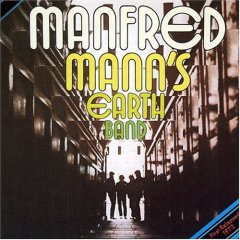Critical reception
The album was met with positive reviews from American critics. [1] Henry Edwards of High Fidelity said the Earth Band had proved themselves greatly superior to other acts in the "British Blues Invasion of the Seventies" by displaying a dedication to the music rather than flaunting their individual abilities. He also applauded bandleader Manfred Mann's performances of "Part Time Man" and "I'm Up and I'm Leaving", writing that they possessed "that haunting, urgent quality that has always marked Mann not only as a quality rocker but also as a musician with serious intentions and the ability to realize them". [15] Ramparts magazine called the album a respite from the "excessively abstracted psychedelic/hard rock" of the time, as well as an exceptional-sounding record that would prove to be "a landmark in the assimilation of new technology into rock without yielding to any impulse to make it a gimmick". [16] At the end of 1972, Manfred Mann's Earth Band was named the third best album of the year in Robert Christgau's column for Newsday . The music critic applauded Mann's innovative synthesizer parts and both the "original and borrowed" lyrics, while calling the album "one of those future-rock records that will probably spawn no heirs, even by the group that made it". [17] Reviewers in the UK were less receptive to the album, according to Robert Corich in his notes for its reissue. [1]
Christgau later ranked the album number 17 on a decade-end list for The Village Voice , [18] and described it as "an extraordinary cult record" that achieved rock's dichotomous "art-commerce" synthesis, something he said Mann had espoused since the early years of his music career. [8] AllMusic critic J.P. Ollio called it "a completely satisfying album and one of the most underrated of the '70s", in which the Earth Band explored "arty and progressive directions" without succumbing to the weight of their own pretensions. Ollio highlighted the record's "hypnotic instrumentals", Mann's "exhilarating original songs", and the "three definitive covers" of Randy Newman's "Living Without You", Dr. John's "Jump Sturdy", and Bob Dylan's "Please, Mrs. Henry". [7]
This page is based on this
Wikipedia article Text is available under the
CC BY-SA 4.0 license; additional terms may apply.
Images, videos and audio are available under their respective licenses.
